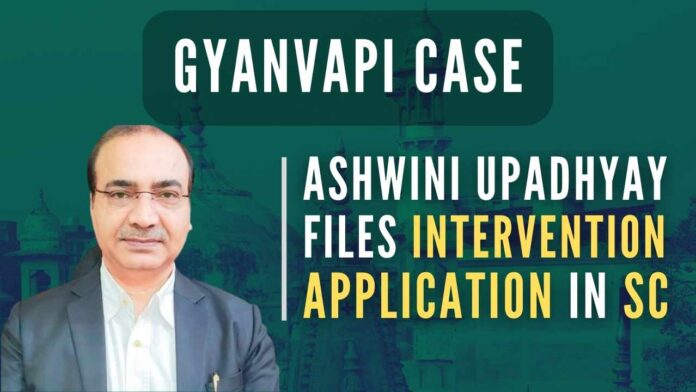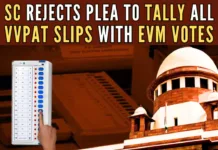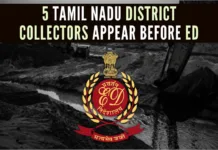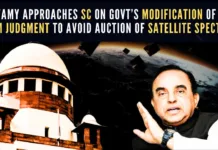
‘Temple’s religious character does not change after the demolition’: Ashwini Upadhyay
On Monday, impleadment in the Gyanvapi case has been sought after by the BJP leader and lawyer Ashwini Kumar Upadhyay. He has filed an intervention application in the Supreme Court. Upadhyay argued that the petition filed by the Muslim side has become infructuous as the Places of Worship Act doesn’t bar the determination of religious character.
Upadhyay has mentioned that he was born in Prayagraj and regularly visited Varanasi to offer prayers to Lord Mahadev and Goddess Gauri. He stressed that a temple’s religious character does not change after the demolition of the roof, walls, pillars, foundation and even offering Namaz. Moreover, he contended that a temple always remains a temple unless the idol is shifted to another temple with specific rituals.
He further stated, “My submission is that mosque is simply a place of faith. And that’s why in the Gulf countries, mosques are demolished to build roads and schools. On the other hand, this law is cited by the Muslim side – the Places of Worship Act. So, the temple is a place of worship. A mosque is a place of prayer. So, the law which deals with the place of worship cannot be cited by the Muslim side because the mosque is not the place of worship.”
His application mentioned, “Applicant submits that only those places can be protected, which were erected or constructed in accordance with the personal law of the person erected/ constructed them, but places erected or constructed in derogation of the personal law, cannot be termed as a ‘place of worship.’ It is submitted that the retrospective cutoff date was fixed 15th August 1947 to legalize the illegal acts of barbaric invaders”.
“The mosque constructed at temple land cannot be a mosque, not only for the reason that such construction is against Islamic law but also on grounds that the property once vested in the deity continues to be deity’s property and right of deity and devotees are never lost, howsoever long illegal encroachment continues on such property. Right to restore back religious property is unfettered and continuing wrong and injury may be cured by judicial remedy,” it added.
Earlier, during the hearing, the SC had also observed that the application filed by the mosque committee challenging the maintainability of the suit ‘shall be decided on priority by the District Judge upon the transfer of the suit”. Further, the Court directed District Magistrate (DM) to protect the area where the Shivling was formed.
Meanwhile, on Monday, the Varanasi District Judge reserved the order in the Gyanvapi mosque case. The verdict is expected to come tomorrow.
PGurus is now on Telegram. Click here to join our channel and stay updated with all the latest news and views
For all the latest updates, download PGurus App.
- Smriti Irani files nomination from crucial Amethi seat; holds massive roadshow ahead of filing her nomination papers - April 29, 2024
- CISF personnel to be deployed at ED offices amid growing security concerns - April 29, 2024
- Canada: Pro-Khalistan slogans raised during PM Justin Trudeau’s speech - April 29, 2024










